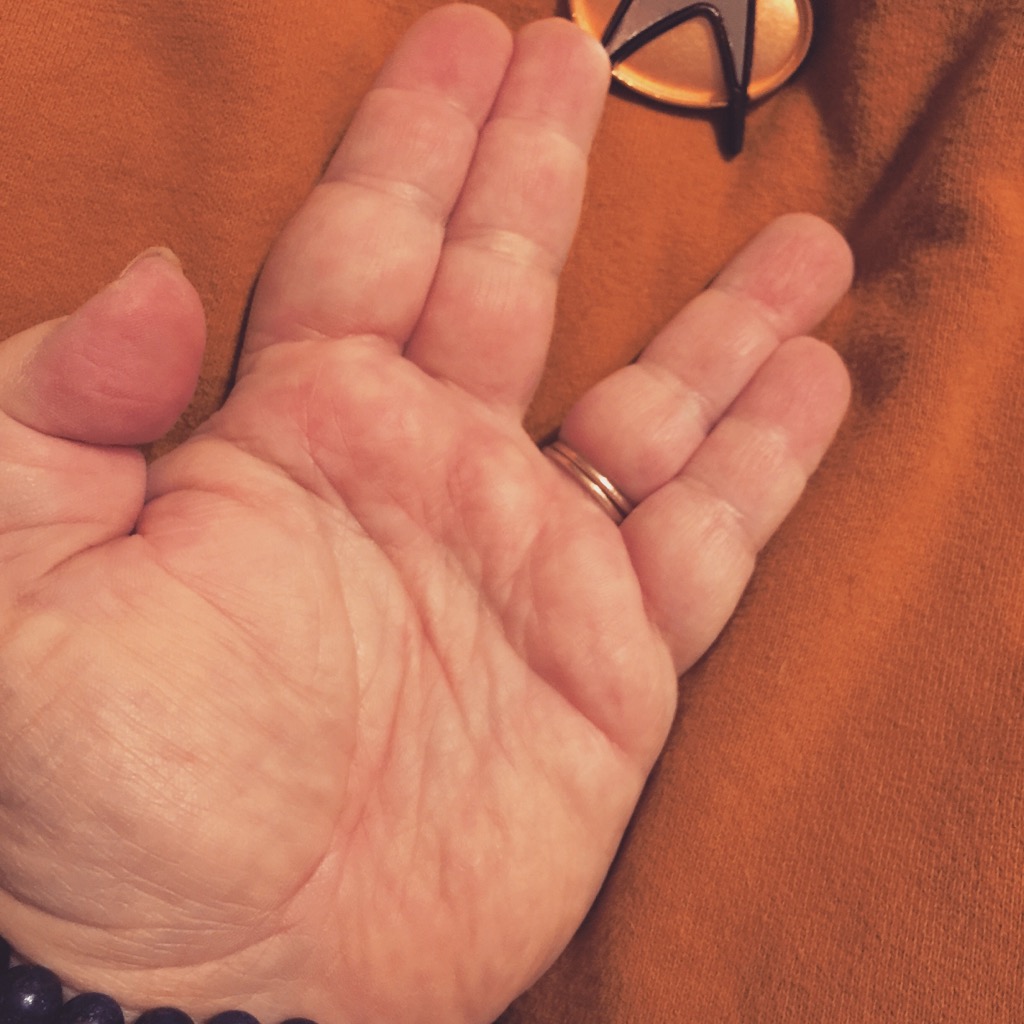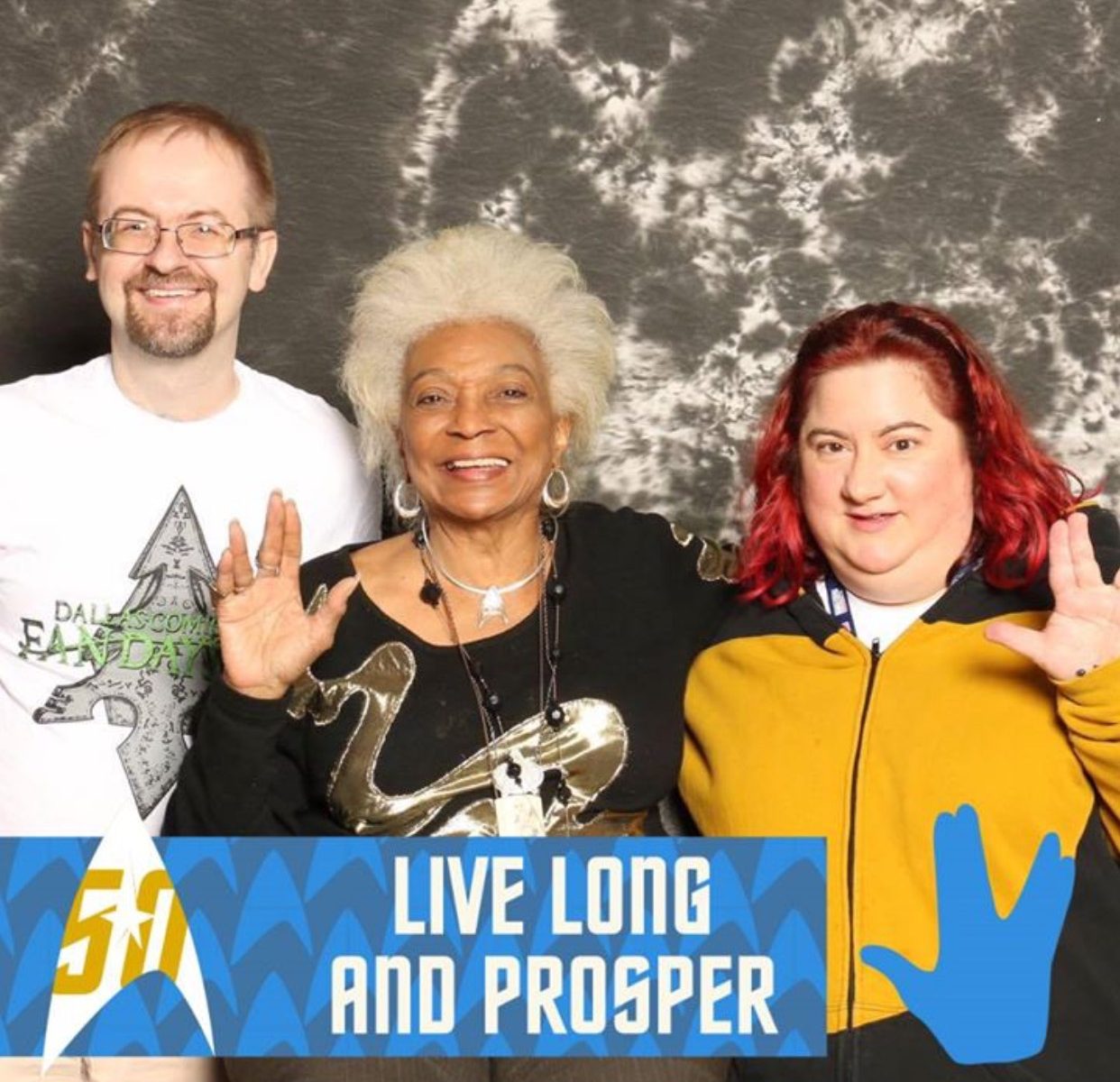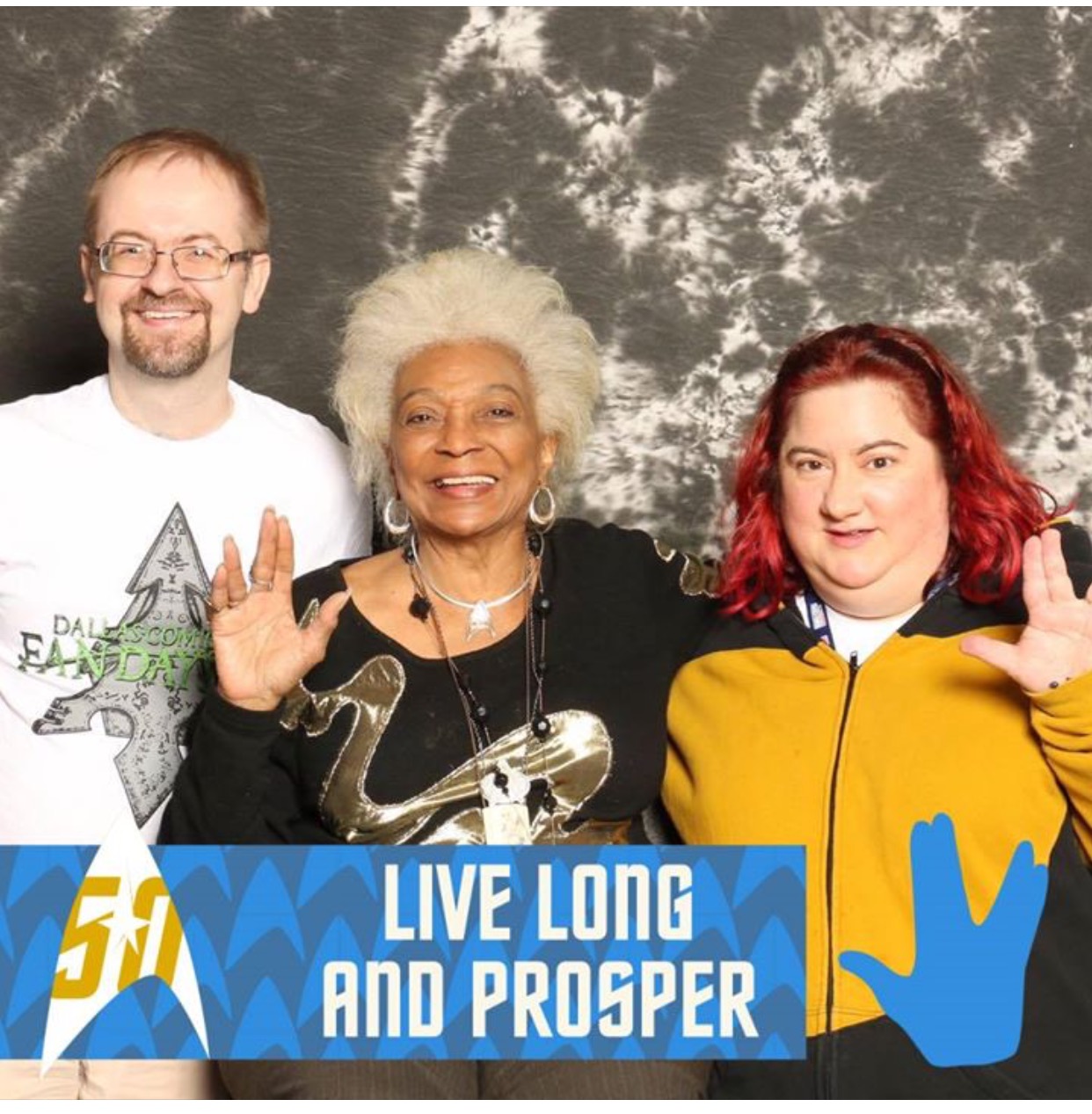
Live long and prosper.
Star Trek may have first beamed onto our televisions in September, 1966, but those four words weren’t actually spoken by Mr. Spock until roughly a year later, on September 15th 1967*.
Like “Beam me up, Scotty,” and “I’m a doctor not a whatever,” it’s a phrase that has passed into the cultural vernacular of, not just the United States, but the entire world, and you don’t have to be a sci-fi geek or even a particular Star Trek fan to have heard them.
On the surface those words were just a ritual greeting used by a fictional culture, but in reality they embody the overall message of Star Trek as a whole. They are a message of hope.
It’s a message that has been part of my being almost since I was born.
 I wasn’t an OT (Original Trekkie) having being born the year after the original series ended, but my mother is the one who introduced me to it, and I was among the first generation of kids to be raised on its reruns. As the child of a single mother, I found father figures in Captain Kirk, Mr. Spock, Dr. McCoy and Scotty. (Especially Scotty, but I don’t know why. Maybe it was the accent.) At the same time, Lt. Uhura’s warmth and grace made her feel like a sort of auntie to me, and when she was the one who solved a problem or got to be in charge, it gave me a glimpse of what girl-power could grow up to be.
I wasn’t an OT (Original Trekkie) having being born the year after the original series ended, but my mother is the one who introduced me to it, and I was among the first generation of kids to be raised on its reruns. As the child of a single mother, I found father figures in Captain Kirk, Mr. Spock, Dr. McCoy and Scotty. (Especially Scotty, but I don’t know why. Maybe it was the accent.) At the same time, Lt. Uhura’s warmth and grace made her feel like a sort of auntie to me, and when she was the one who solved a problem or got to be in charge, it gave me a glimpse of what girl-power could grow up to be.
More than that, though, Star Trek showed me – showed all of us – a future where all people were equal, regardless of gender or nationality.
Star Trek: The Next Generation was my coming-of-age Star Trek, launching as I was starting my senior year of high school, and ending around the time I first met my husband.
If the messages of hope and unity had been strong in the original series, in the first of its live-action sequels it was even stronger, extending beyond social and cultural equality to include more representation of women in STEM fields.
True, most of them were still in ‘caring’ professions, and also true, I had no interest in focusing on a STEM-related career myself (though I’d later find work in computer tech support), but just the presence of so many women in leadership roles, combined with the fact that Captain Picard was even more committed than Captain Kirk to the peaceful resolution of disputes, resorting to violence only when necessary, had a real impact on me, and on the world.
The later incarnations of televised Star Trek came at times when I wasn’t able to watch them week by week, as their stories unfolded. I caught a lot of Star Trek: Voyager when it was being run two episodes at a time on Spike several years ago, and Star Trek: Deep Space Nine was a relatively recent binge-watch (thank you, Netflix), but the enduring theme of hope is still present in both.
In DS9, that message is often sublimated by the hard truths of war and conflict, as it is so often in our real lives, but it persists even though the series represents Star Trek at its darkest. Conversely, in Voyager which is, at its core, a seven-year quest to get back home, it’s possibly at its strongest.
But it is always, always there.
In fact, DS9 cast member Armin Shimerman (Quark), in a panel at the Mission: New York Star Trek convention a couple of weeks ago, answered a question about that show’s starbase setting by stating unequivocally: “Starships do not make Star Trek. Hope makes Star Trek.”
And now it’s 2016, and every social, every cultural step we’ve moved forward seems, at times, to be counter-balanced by a step back. Darkness encroaches upon our lives through politics, through economics, and through civil unrest. Our media – especially our fiction – is filled with heroes and villains who seem to be locked in never-ending battles or filled with zombies, vampires and demons.
Don’t get me wrong; I love fictional horror as much as anyone, but when the darkness, both real and fictional, gets too intense, Star Trek is my safe space (and I’m pretty sure I’m not alone in this). Sure, I’ve seen every episode at least twice at this point, but every time, I find some new nuance in a performance, some new detail in the script, that adds depth.
If macaroni and cheese is comfort food, Star Trek is comfort-viewing, as much because of the familiarity I have with it as because of that message of hope.
Jonathan Frakes, William Riker on Star Trek: The Next Generation, has often referred to a conversation he had with franchise creator Gene Roddenberry, early in the production of the first season of TNG. “In the 24th century,” Frakes quotes Roddenberry, “there will be no hunger, and no greed, and all the children will know how to read.”
If we have the power to choose our future – and I believe that we do – how can we not want the future where no one has to be cold, hungry, tired, dirty, or lacking in toilet paper?
How can we not choose the future where education is revered, and art and science are given equal merit?
How can we not choose the future that represents hope for ourselves as individuals, and for our species as a whole?
“Live long and prosper,” Spock utters on our television and movie screens, and in so doing he is wishing us hope. Hope for long, fulfilled lives in which we achieve success in whatever way each of us chooses to define it.
“Live long and prosper,” the words say, and in my head I have two replies.
The first is the ritual response, the one any fan would likely respond with automatically: “Peace and long life.”
The other is a line from Star Trek III: The Search for Spock. Commander Uhura says it as she beams her crewmates – her chosen family – to their starship to undertake a mission she will only join much later in the story. I used to think of it as a throw-away goodbye, but lately, I’ve found it to be more meaningful:
All my hopes.
*The episode was Amok Time, and it aired in the second season.
About the author: Melissa A. Bartell
 Melissa is a writer, voice actor, podcaster, itinerant musician, voracious reader, and collector of hats and rescue dogs. She is the author of The Bathtub Mermaid: Tales from the Holiday Tub. You can learn more about her on her blog, or connect with her on on Facebook, Instagram, or Twitter.
Melissa is a writer, voice actor, podcaster, itinerant musician, voracious reader, and collector of hats and rescue dogs. She is the author of The Bathtub Mermaid: Tales from the Holiday Tub. You can learn more about her on her blog, or connect with her on on Facebook, Instagram, or Twitter.


